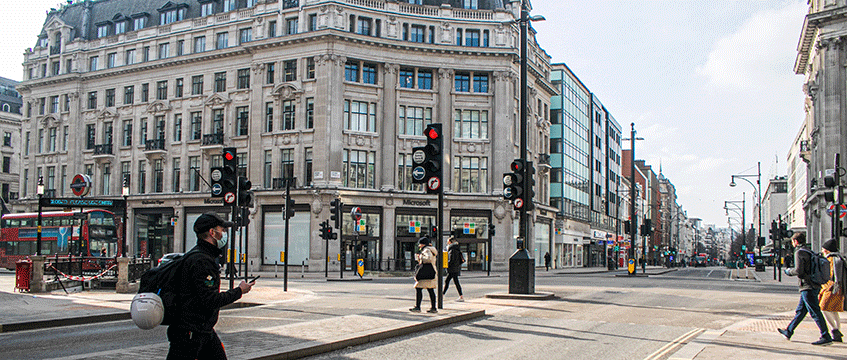The director in charge of Oxford Street’s £150m revamp has left in the wake of the Marble Arch Mound fiasco, EG can reveal, as Westminster City Council this week published a damning internal review into the failures of the project.
Elad Eisenstein, who was Westminster City Council’s Oxford Street programme director, has left just a year after taking the job, in a severe blow to the council’s plans to rejuvenate the pandemic-hit shopping street.
A former Arup architect and urban designer, Eisenstein was a driving force behind the launch of the Mound, which was dubbed the “worst attraction in London”.
He also masterminded the latest blueprint for the regeneration of Oxford Street, a long-term plan which the Mound was designed to spearhead.
It is unclear who will take the lead on the project, which was a major part of Westminster City Council’s plans for the area over the next five years.
The council declined to comment and Eisenstein was unavailable for comment.
The news comes after Westminster’s report into the Mound found a slew of management failures and a deliberate attempt to conceal its rising costs from council members.
The internal review, published yesterday, said the council’s normal checks and measures to ensure projects ran smoothly were “circumvented” in an attempt to deliver the Mound on time and hide the actual costs of the project.
The Mound was intended to cost around £2.5m, but that soared to £6m in the face of rising project costs and a disastrous launch which led Westminster to scrap its paid entry system.

Westminster City Council chief executive Stuart Love called the report’s findings “unacceptable” and said the council was taking action to address them.
He added: “A series of errors in judgment, coupled with a lack of sufficient oversight, led to a failure of project management on the Mound. We did not meet our own high standards on this project and for that I apologise again.”
The report stressed that there was “no evidence to suggest that the problems associated with the Mound have occurred or are occurring elsewhere in the council”.
However, it recommended that the council review the make-up of its senior leadership team at director level and above “to ensure appropriate levels of resourcing, skills and capacity”.
Former deputy council leader Melvyn Caplan resigned earlier this year after the politician publicly shouldered the blame for the monument. It is understood that Eisenstein had stopped work before the report was published.
Eisenstein’s departure marks the latest episode in Westminster’s long-running saga concerning the future of Oxford Street and its surrounding area.
Successive mayors of London have promised to pedestrianise the street over the years, but Sadiq Khan’s 2016 election pledge to turn it into “a tree-lined shoppers’ paradise” was controversially shelved in 2018.
Since then, the council has been forced to hold fire on subsequent proposals after the Covid-19 pandemic effectively closed the street for much of last year.
The latest plan included two large pedestrian plazas at Oxford Circus junction by the end of this year, but that has been put on hold until 2022.
To send feedback, e-mail alex.daniel@eg.co.uk or tweet @alexmdaniel or @EGPropertyNews











